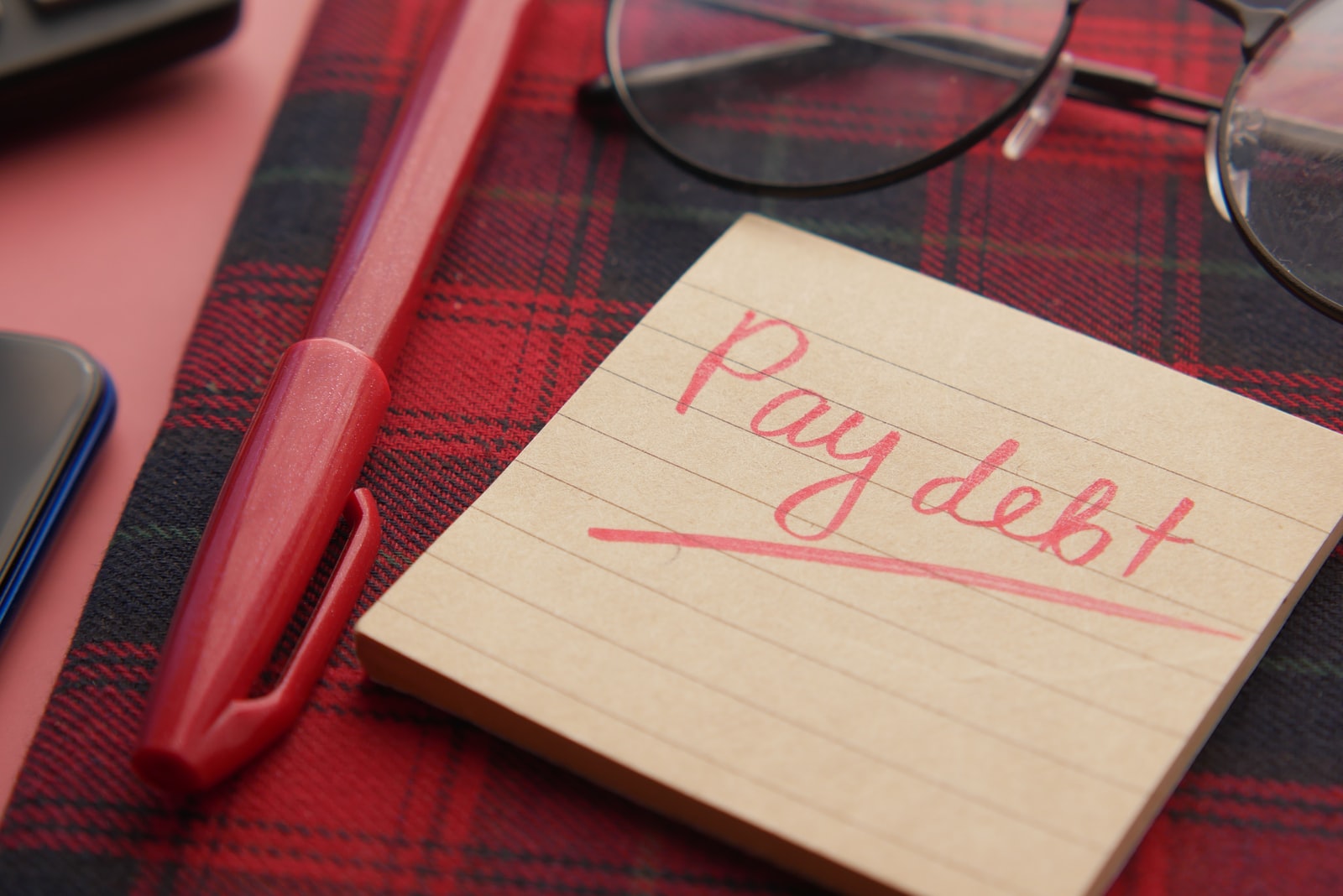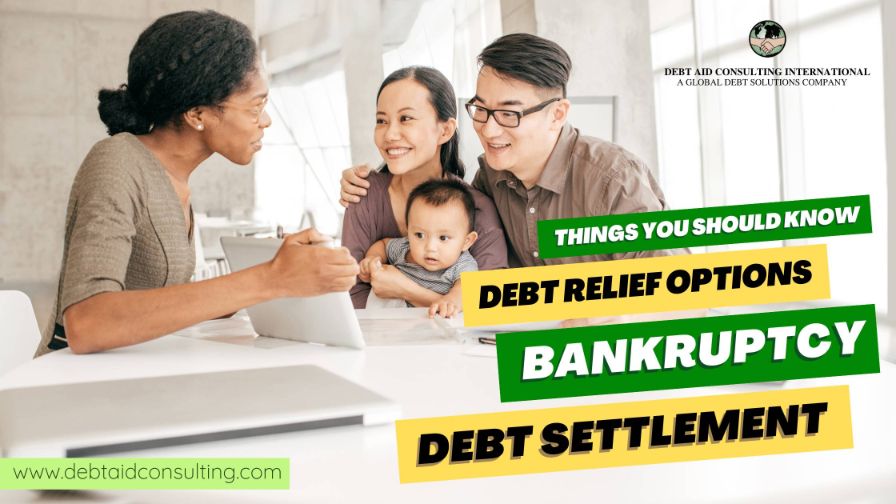Introduction
How to Get Out Of Debt: Practical Tips and Strategies.
Debt can be a heavy burden to bear, causing stress and anxiety in our lives. Fortunately, there are ways to regain control of your financial situation and pave the path toward a debt-free future. This blog post will explore three effective methods for getting out of debt: debt mediation, debt settlement, and consumer proposal. While these options provide hope for individuals struggling with debt, it is crucial to thoroughly research and understand the potential consequences and risks associated with each approach. Seeking advice from a financial advisor or debt consultant can also provide invaluable guidance.
1. Get Out Of Debt through Debt Mediation
Debt mediation, also known as debt negotiation or debt settlement, involves working with a professional mediator to negotiate with your creditors on your behalf. This approach aims to reduce the overall amount of debt you owe by negotiating lower interest rates, waiving fees, or even forgiving a portion of the principal balance. Here’s how debt mediation works:
- Assessing your financial situation:
The first step in debt mediation is to evaluate your financial standing, including your income, expenses, and outstanding debts. This assessment helps determine whether debt mediation is a viable option for you. - Engaging a debt mediator:
Once you’ve decided to pursue debt mediation, it’s crucial to work with a reputable debt mediation agency or a qualified mediator. These professionals have experience in negotiating with creditors and can guide you through the process. - Creating a repayment plan:
Your debt mediator will help you develop a realistic repayment plan based on your financial capabilities. They will negotiate with your creditors to secure more favorable terms, such as lower interest rates or extended repayment periods. - Making payments:
As per the repayment plan, you will make regular payments to the debt mediation agency, which will distribute the funds to your creditors. This process continues until your debts are fully paid off.
Benefits of debt mediation to help you get out of debt
- Reduced debt burden:
Debt mediation aims to lower the total amount you owe by negotiating with your creditors, providing you with an opportunity to settle your debts for less than the original balance. - Professional guidance:
Working with a debt mediator can relieve the stress of negotiating with creditors on your own. They have the expertise to navigate complex financial situations and develop customized repayment plans.
Potential risks of debt mediation
- Credit score impact:
Debt mediation may have a negative impact on your credit score since you are not repaying the full amount owed. However, this impact can be temporary and may be outweighed by the benefits of debt relief. - Tax implications:
In some cases, forgiven debt through mediation may be considered taxable income. It is essential to consult a tax professional to understand the potential tax consequences.
2. Get Out Of Debt through Debt Settlement
Debt settlement is another option for individuals struggling with debt. Similar to debt mediation, debt settlement involves negotiating with creditors to reduce the total amount owed. However, in debt settlement, you typically make lump-sum payments to settle your debts. Here’s how debt settlement works:
- Assessing your financial situation:
Like with debt mediation, assessing your financial situation is the first step in debt settlement. Understanding your income, expenses, and debts will help determine if debt settlement is a viable solution for you. - Contacting your creditors:
Once you’ve decided to pursue debt settlement, you or a debt settlement company will reach out to your creditors to negotiate lower settlements. This process involves offering a lump-sum payment that is less than the total outstanding balance. - Negotiating with creditors:
Negotiations with creditors can be challenging, but they may be willing to accept reduced payments to recover a portion of the debt rather than risking receiving nothing at all. A skilled negotiator can help you secure the best possible settlement. - Making lump-sum payments:
If your creditors agree to the settlement, you will need to make the negotiated lump-sum payments to each creditor until all your debts are settled.
Benefits of debt settlement to help you get out of debt
- Debt reduction:
Debt settlement offers the possibility of significantly reducing your outstanding debt, allowing you to become debt-free faster than traditional repayment methods. - Faster debt resolution:
By negotiating lump-sum payments, debt settlement provides an accelerated path to debt relief compared to regular monthly payments.
Potential risks of debt settlement
- Credit score impact:
Similar to debt mediation, debt settlement can negatively impact your credit score since you are not repaying the full amount owed. However, the impact can be temporary, and as you settle your debts, your credit score can begin to recover. - Debt settlement fees:
If you choose to work with a debt settlement company, they may charge fees for their services. It’s important to research and understand these fees before committing to a specific company.
Want to learn more about Debt Settlement? click here to read
3. Get Out Of Debt through Consumer Proposal (For Canada Residence Only)
A consumer proposal is a legal process governed by the Bankruptcy and Insolvency Act and offers an alternative to declaring bankruptcy. It involves making a formal offer to your creditors to settle your debts based on what you can reasonably afford. Here’s how a consumer proposal works:
- Seeking professional assistance:
To file a consumer proposal, it is recommended to seek the assistance of a licensed insolvency trustee (LIT). An LIT will assess your financial situation, help you create a proposal, and act as the intermediary between you and your creditors. - Developing a proposal:
With the help of an LIT, you will create a proposal that outlines how much you can afford to pay your creditors and over what period. This proposal is then sent to your creditors for review. - Creditor acceptance:
Your creditors will review the proposal and vote on whether to accept or reject it. If the majority of your creditors accept the proposal, it becomes legally binding on all creditors, including those who voted against it. - Making payments:
Once the consumer proposal is accepted, you will make regular payments to the LIT, who will distribute the funds to your creditors according to the agreed-upon terms.
Benefits of a consumer proposal to help you get out of debt
- Debt reduction:
A consumer proposal allows you to reduce your overall debt burden by negotiating with your creditors. - Legal protection:
When you file a consumer proposal, you are granted immediate protection from creditor actions, such as wage garnishments or collection calls.
Potential risks of a consumer proposal
- Credit score impact:
Filing a consumer proposal will impact your credit score, and the proposal will remain on your credit report for a specified period. However, this impact is generally less severe than that of bankruptcy. - Strict payment requirements:
It is essential to make payments as per the agreed-upon terms of the consumer proposal. Failure to do so may result in the proposal being annulled, and you may be required to explore alternative options, such as bankruptcy.
Conclusion
Getting out of debt is a challenging but achievable goal. Debt mediation, debt settlement, and consumer proposal are three viable options for individuals struggling with debt. Each method has its benefits and potential risks, and it is crucial to research and understand the implications of each approach before making a decision. Seeking advice from a financial advisor or a debt consultant can provide valuable guidance throughout your journey to financial freedom. Remember, with determination, a sound plan, and disciplined financial habits, you can overcome debt and pave the way for a brighter financial future.





